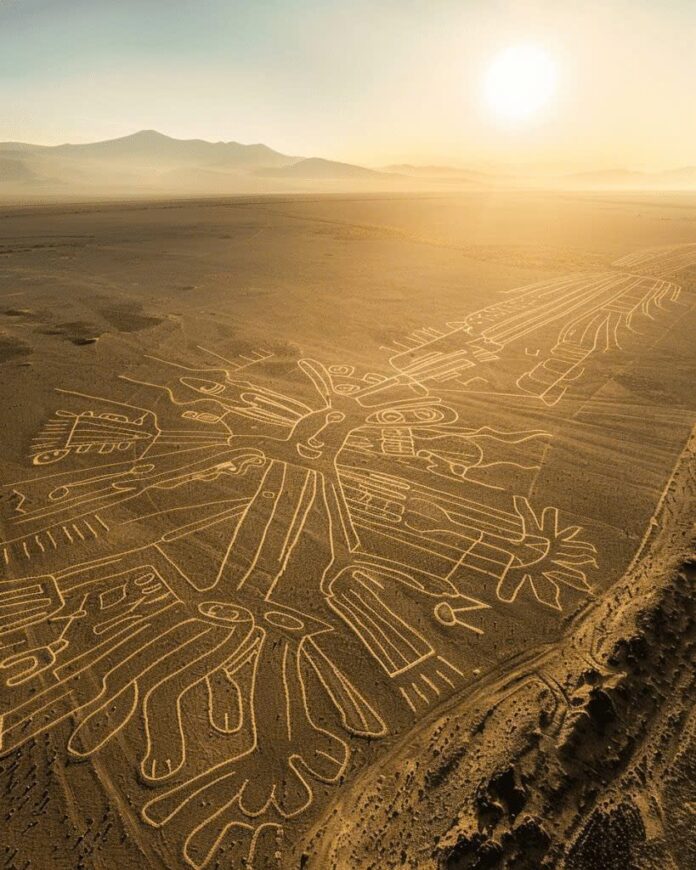Unveiling the Mystery of Peru’s Geoglyphic Masterpiece
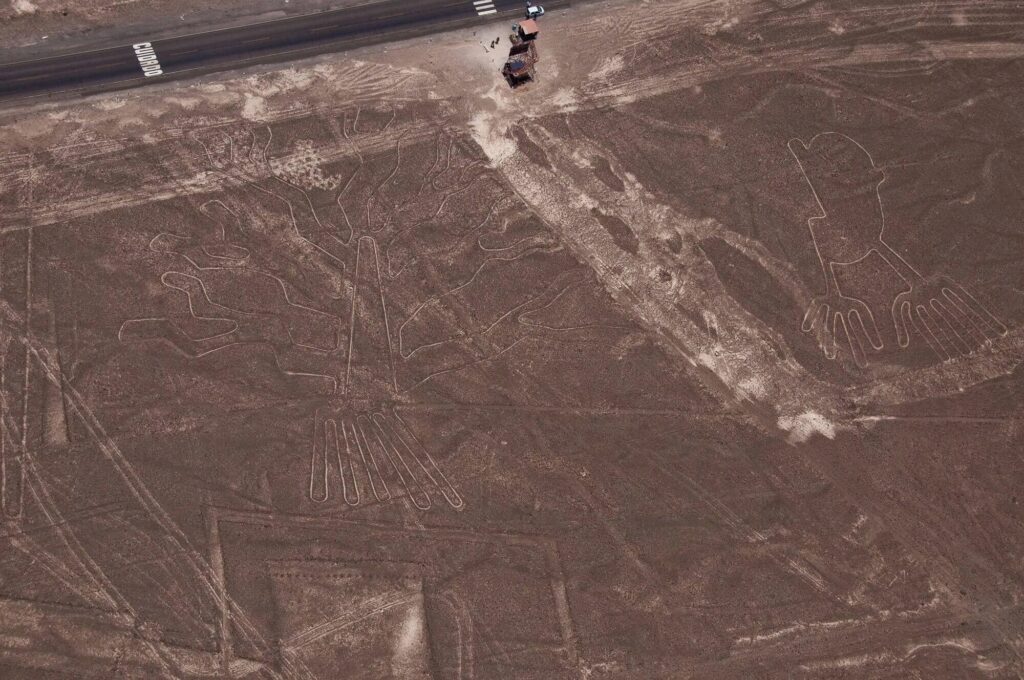
In the arid coastal plains of Peru, about 250 miles south of Lima, lies an archaeological wonder that has captivated the world for decades – the Nazca Lines. These colossal geoglyphs, etched into the earth’s surface over 2,000 years ago, continue to baffle experts and inspire wonder in all who behold them.
A Canvas of Ancient Artistry

The Nazca Lines comprise over 800 straight lines, some stretching an incredible 30 miles, alongside intricate geometric shapes and over 70 animal and plant designs. From a spider and hummingbird to a monkey and whale, these figures span up to 1,200 feet in length. Recent discoveries, including a scene of decapitation and a 98-foot-long mythical creature, have only deepened the mystery surrounding these ancient artworks.
The Ingenious Creators
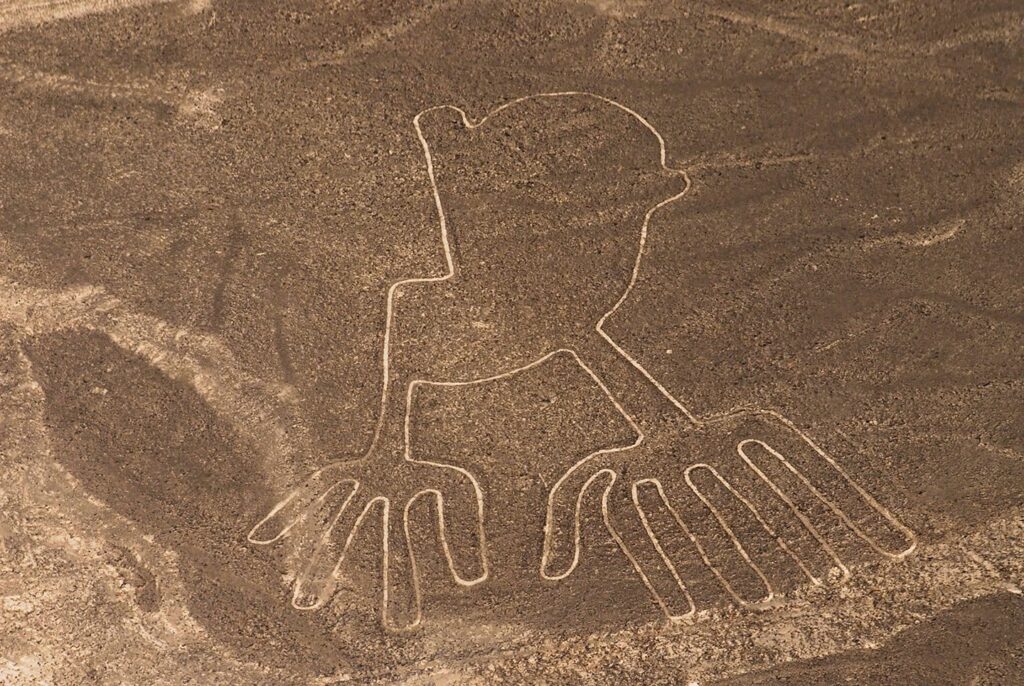
Scholars attribute the creation of the Nazca Lines primarily to the Nazca culture, which flourished between 100 B.C. and A.D. 700. However, earlier civilizations like the Chavin and Paracas may have contributed to some designs. The ancient artists meticulously removed the top layer of iron oxide-coated pebbles to reveal the lighter sand beneath, creating these enduring masterpieces.
Theories and Speculations
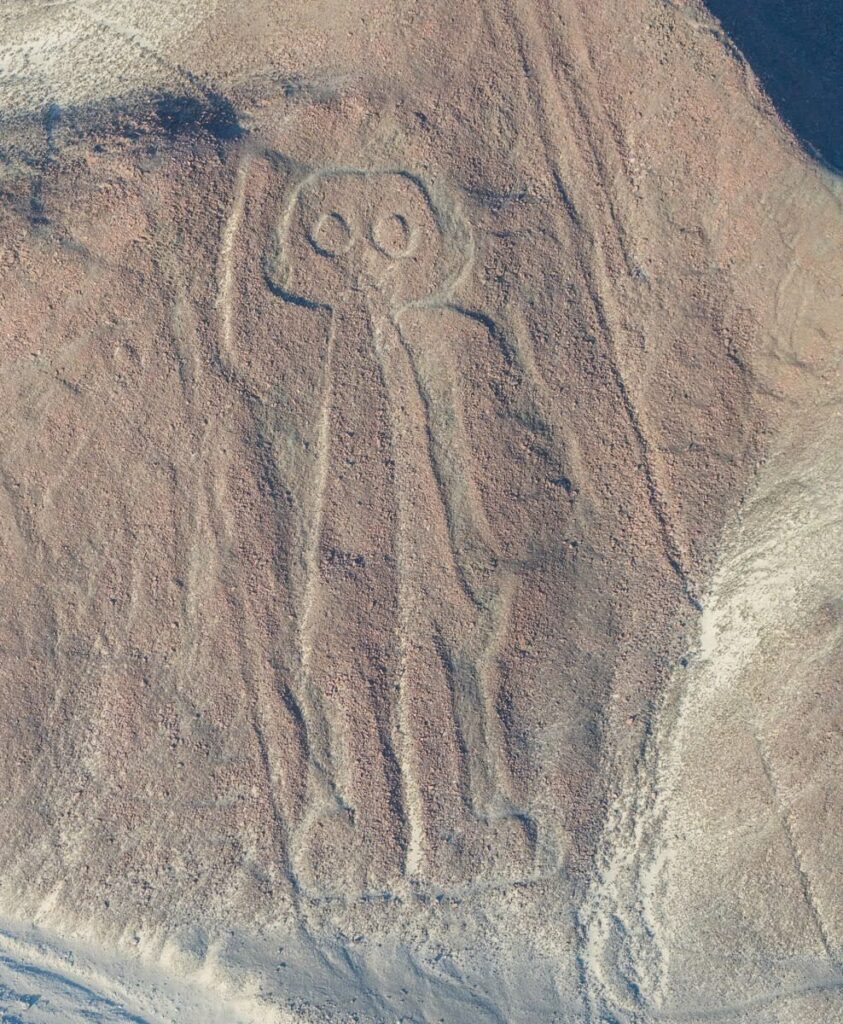
Over the years, theories about the purpose of the Nazca Lines have ranged from astronomical calendars to alien landing strips. However, recent research suggests a more earthly purpose – they may have been part of water-seeking rituals, with the geoglyphs serving as offerings to the gods in hopes of rain.
Preserving an Ancient Legacy
Despite their resilience over millennia, the Nazca Lines face modern threats. Incidents of damage from rainfall, misguided environmental activism, and careless truck drivers have highlighted the need for enhanced conservation efforts. As we continue to unravel the mysteries of the Nazca Lines, preserving these ancient wonders for future generations remains paramount.
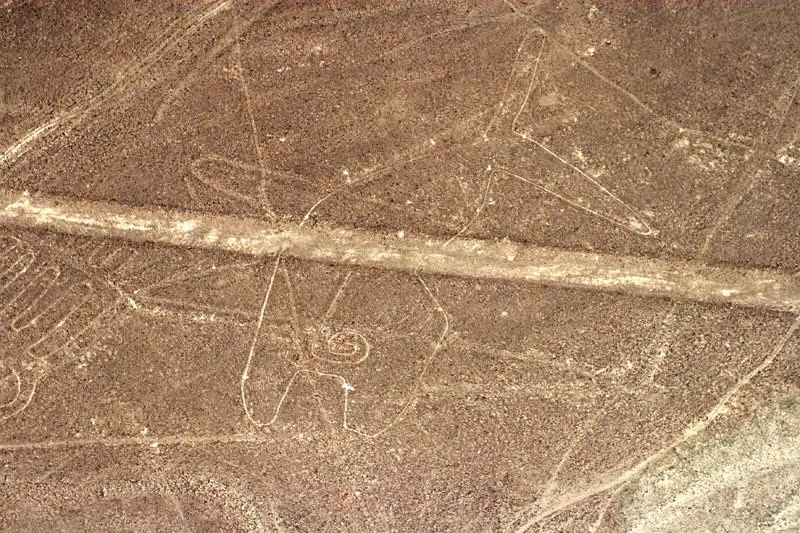
The Nazca Lines stand as a testament to human creativity and ingenuity, inviting us to ponder the beliefs, practices, and aspirations of an ancient civilization that left an indelible mark on the landscape of Peru.
